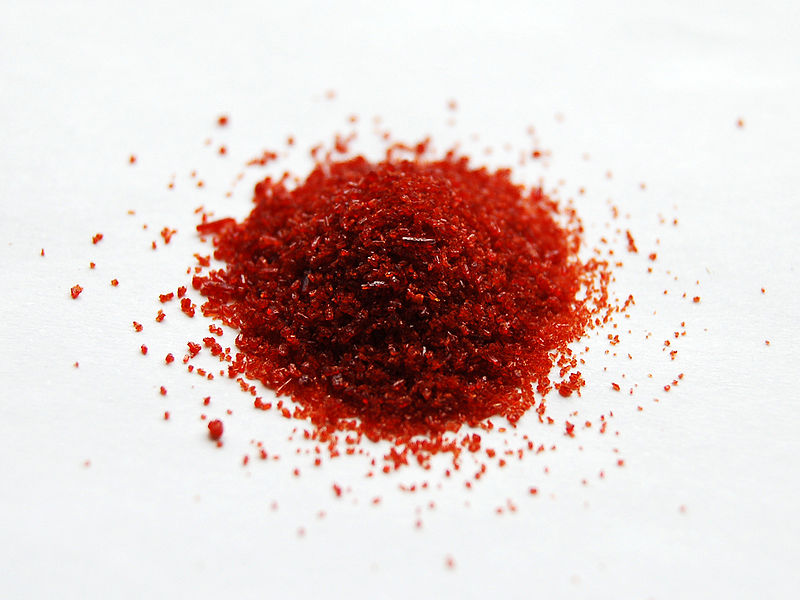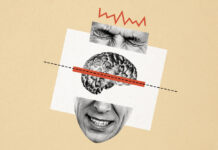In 2013, a small preliminary study suggested that sodium nitroprusside, generally an antihypertensive drug, could result in startlingly positive improvements in schizophrenia symptoms, within hours of a single infusion. Unfortunately, a new, more extensive study has failed to replicate this finding. It’s the third such study to show no effect.
The current study was led by Hannah E. Brown at Massachusetts General Hospital, Harvard Medical School, and Boston University. The primary investigators listed on clinicaltrials.gov were Maurizio Fava and Roy Perlis, both also at Massachusetts General Hospital.

The study included 60 participants; they were randomly assigned to three groups. One group received the drug, one group received the placebo, and one received the placebo and then the drug. This served as a placebo wash-out period, which meant that people who improved on placebo were removed from the analysis.
Theoretically, this should have made the study even more likely to detect an effect of the drug. However, the researchers found that there was no effect—no difference between any of the groups. Studies from 2016 and 2018 found similar results.
Shitij Kapur and Marcus Munafò are researchers at the University of Melbourne, Australia, and the University of Bristol, UK, respectively. They wrote an accompanying editorial, also in JAMA Psychiatry. In their editorial, they argue that (in light of these three failures to replicate) the only explanation for the positive findings of the 2013 trial is that a single trial with a small sample size can render almost any outcome possible. They suggest that we should re-evaluate the way small preliminary studies are reported, as they are too likely to find false positive effects.
The authors of the original 2013 study suggested that “This discovery will be an important advance in the pharmacologic treatment of this devastating disorder.” After three failed replications, however, it now appears unlikely to be such an advance.
****
Brown, H. E., Freudenreich, O., Fan, X., Heard, S. O., Goff, D., Petrides, G. . . . Perlis, R. H. (2019). Efficacy and tolerability of adjunctive intravenous sodium nitroprusside treatment for outpatients with schizophrenia: A randomized clinical trial. JAMA Psychiatry. Published online March 27, 2019. doi:10.1001/jamapsychiatry.2019.0151 (Link)















> Unfortunately, a new, more extensive study has failed to replicate this finding. It’s the third such study to show no effect.
Why do you say “unfortunately”?
The last time they found an “effective” treatment for schizophrenia (neuroleptics), the rate of recovery of schizophrenics decreased from 17.7% in 1941-1955 to 6% in 1996-2012 (Jääskeläinen, 2012).
The non-reproduction of the preliminary results is a good new, insofar as it avoids a new sanitary catatrophe, as have been all psychiatric treatments deemed “effective” by psychiatrists.
The research paradigm, according to which psychiatric drug toxicomania is the solution to life problems, is false, and any “advancement” in this field means nothing but the development of psychiatry and the dive into artificiel hell of a ever greater mass of people.
Jääskeläinen, E., Juola, P., Hirvonen, N., McGrath, J. J., Saha , S., Isohanni, M., Veijola, J., Miettunen, J. (2012). A Systematic Review and Meta-Analysis of Recovery in Schizophrenia. Schizophr Bull (2013) 39 (6): 1296-1306. DOI: https://doi.org/10.1093/schbul/sbs130 https://academic.oup.com/schizophreniabulletin/article/39/6/1296/1884290/A-Systematic-Review-and-Meta-Analysis-of-Recovery
Report comment
“this devastating disorder” [“schizophrenia”] was declared “invalid” and “unreliable” in 2013, too.
https://www.nimh.nih.gov/about/directors/thomas-insel/blog/2013/transforming-diagnosis.shtml
In part, because the people now know that the “schizophrenia” treatments, the antipsychotics (aka neuroleptics), can create the negative symptoms of “schizophrenia,” via neuroleptic induced deficit syndrome. And the antipsychotics can create the positive symptoms of “schizophrenia,” via antipsychotic induced anticholinergic toxidrome.
https://en.wikipedia.org/wiki/Neuroleptic-induced_deficit_syndrome
https://en.wikipedia.org/wiki/Toxidrome
Anything to distract from the truth, which is that even “schizophrenia” is an iatrogenic illness created with the psychiatric drugs.
Report comment
Misdiagnosis and the “Creation of “Schizophrenia”” through Strong Psychiatric Drugs (IMO).
“Schizophrenia in black Caribbeans living in the UK: an exploration of underlying causes of the high incidence rate”:-
https://www.ncbi.nlm.nih.gov/pmc/articles/PMC2418996/
“….In 2006, ÆSOP reported a ninefold increase in the risk of developing schizophrenia in black Caribbeans when compared with the white British population..”
Report comment
Yes, there’s lots of racism and classism within the scientific fraud based, “we are above our clients,” all people are NOT created as equal, “mental health” workers. They are extraordinarily, even shockingly, un-American.
Report comment
It proves the “drugs” cause the “illness” – as UK Black people are NOT 9 times more likely to be “Schizophrenic”.
Report comment
Still looking for the magic bullet. Is this a more recent part of our psychiatric community’s fumbling effort to prove that the schizophrenia syndrome is a single disease entity?
Report comment
Hi,
Sorry to intrude,
The comments section doesn’t seem to be moving (according to my iphone).
Fiachra
Report comment
How could it possibly be ethical to do this study, or to publish the results?
You are treating people as though they have schizophrenia, a made up illness. Though you say in the article that it is the symptoms of schizophrenia, but you are still treating human beings as lab rats when there is no possible medical justification for this.
I say that this falls within the Nuremburg def’n of Crimes Against Humanity, and so it is punishable in the international court, and it makes no difference what US law says about this.
Report comment
Just a reminder to the uninformed: there is no such thing as schizophrenia. It is a figment of the psychiatric imagination.
Report comment
I read at first “Sodium fluoroacetate”
Report comment
And so doesn’t that mean that this study, and the publication of the article, are entire unethical?
Report comment
Drug research, for a fictional malady, and not really the malady, the symptoms of it. So behavior and mood should be under chemical control? And how could anyone have given informed consent if they were not told that this was a fictional illness, and that it was just experimentation in population control?
What kind of needs does this serve for the researchers, and what sort of needs is it serving for the article’s author.
This falls in the area of settled international law, just as valid now as it was then.
https://en.wikipedia.org/wiki/Doctors%27_trial
Report comment
Removed for moderation.
Report comment
Sodium nitroprusside. Hypotension, headaches, dizziness and a host of heart problems. Minor side effects for us crazies according to the APA.
It also causes restlessness and anxiety. Which they will either 1. Accuse the “patient” of faking. 2. Attribute it to the original malady they presuppose exists. Always the patient’s fault. Shame patients. Not pills.
Report comment
Major Tranquillisers AKA “Antipsychotics” don’t show any efficacy either. “Antipsychotics” disable people and disable everything else belonging to them.
Report comment